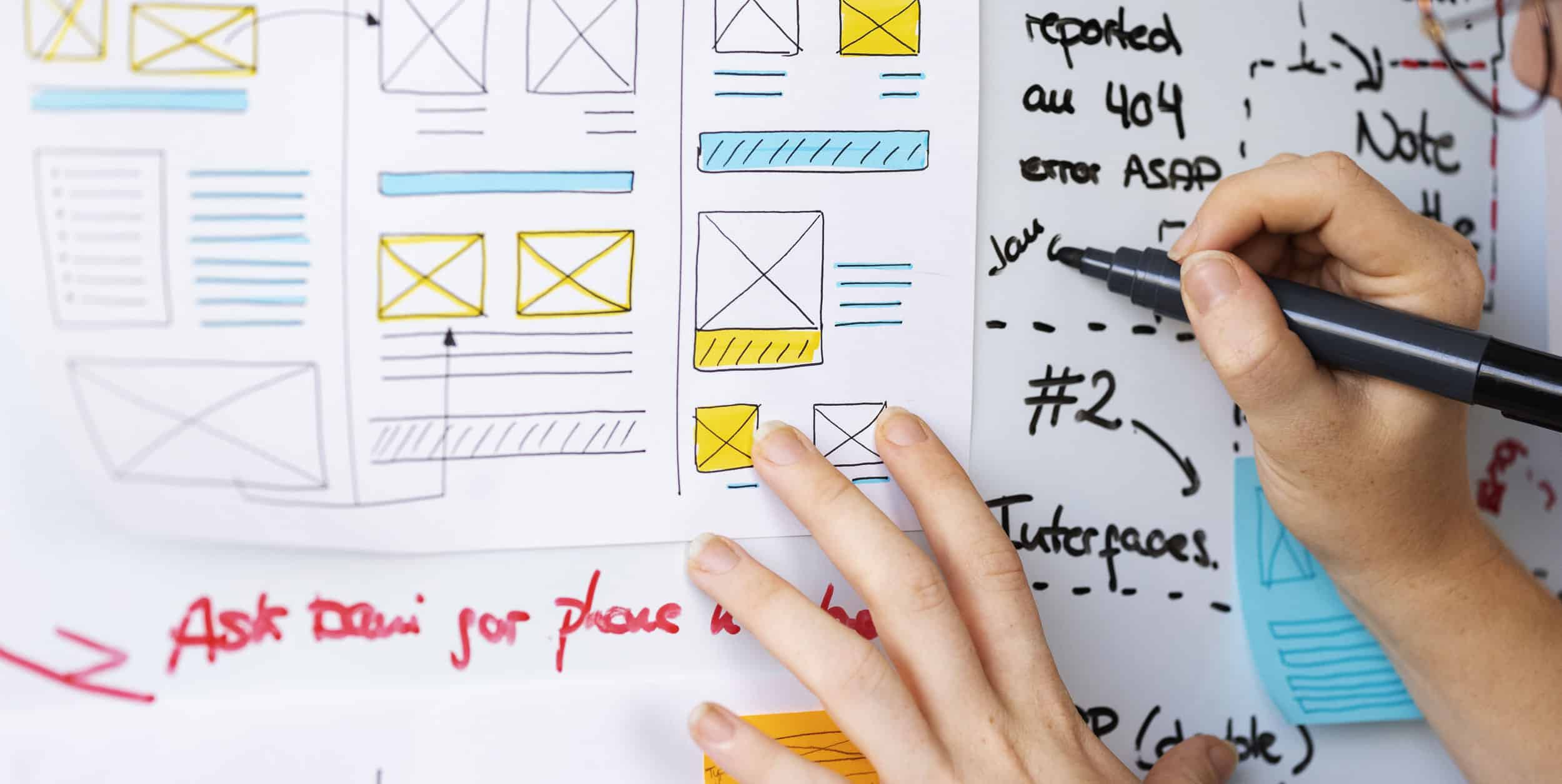
We’ll help you to plan your sites’ content, user journeys and conversions.
It’s a bigger project than you might think.
To perform well, there are literally 100s of considerations that need to go into the planning of your website.
It’s no longer enough to put together a 20-page site and wait for it to rank in the search. Our friends over at HubSpot suggest that the initial design and build of your site represent only 25% of what you should be doing online.
The good news is that you don’t have to do everything at once, but if you don’t have a plan in place for each stage of your website, it’s very easy to overlook important stuff.
Don’t plan to fail.
Websites are complicated projects – website planning is crucial. Even a simple brochure site takes time and resources to get right.
You might be considering a simple website, with 10 or so pages – but you’ve still got a lot of stuff to think about:
- The site map and content structure
- Page titles
- Focus keywords that you want to rank for
- The text content for each page (optimised for the search engines)
- Images for each page (and their ALT tags)
- Internal links
- Navigation structure
- Forms
The stages of a web site planning project.
Research
The crucial and all-important stage of any website project. If you’ve already got a site or starting a new one, there are lots of things to do at during the website planning process. These can include:
- Content research
- Market research
- Competitor research
- Keyword research
- Social media research
- Current site benchmarking (if you have one)
The research stage of the project should give you an overview of where you currently are, what your competitors are doing and how you plan to get where you want to be.
Without this information, there’s no real benchmark for the new site – how are you going to measure success?
Planning and decisions
Some stuff you’ll know, other stuff you’ll need to make best-guess decisions until the new site is up and you’re getting data. The planning stages can include:
- Persona planning
- User Journeys
- User experience
- Content preparation
- Image planning
- SEO planning
- Landing pages
- Calls-to-action
- Conversion tracking
- CRM
- Identifying ROI
That’s a short list, but it covers off a lot of ground. Luckily, we have a website planning template that will help you make sure all the planning gets done and properly influences the design and build stages.
We often find that it’s best to plan all this stuff on paper initially – notes and big ideas that can then be processed down into final plans.
Preparation
Whatever apps you use, something collaborative is essential when planning a website. It can often be useful to put together a website planning guide for everyone involved in the project and some form or website planning worksheet or checklist so everyone can see where you are and what’s been done to date.
We recommend apps such as Google Apps and Basecamp for the planning stages of a web project – this means you only have one copy of each doc or spreadsheet and everything is tracked and in the cloud – this avoids having lots of copies of files pinging around via email.
We generally create all the required planning templates in Google Docs and then help our clients fill in the blanks.
Pulling it all together into a planning process.
We’ve planned, designed and build a lot of websites, so our process is tried, tested and successful.
Time spent planning your website project can save hours further down the project lifecycle and will avoid costly mistakes.
We can help you through all the website design process steps and create project plan templates, a project management plan (even Gantt charts if they work for you).
We’ll help you to organise all your website content, structure and mapping. We create a full website project checklist that’s sorted in order – we complete each stage before moving onto the next to make sure everything gets done properly.
Whatever size of the site, it’s worth a quick chat.
If you are considering a new website or redesigning an existing one – it’s worth having a quick chat with our web team to see how we can help you.
We’ve developed several different routes – from Workshops and meetings to self-serve process and project templates that we can share with you.
Get started